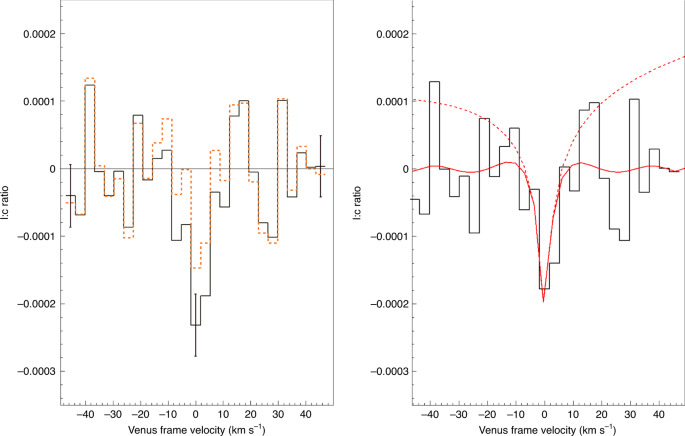so this is lit as shit. theyre saying there is a source of PH3 in the atmosphere of venus, an atmosphere which rarely has any sort of bond containing hydrogen. this implies it could be life.
however, they also mentioned it appearing near the equator. and that made me remember some articles about phosphine in comets and some others about how asteroids tend to hit our equator more. how much yall wanna reckon a giant comet hit that motherfucker many years back and had ph3 in it? they say that the phosphine would deplete in 10^3 years if it is not renewed, i didnt see any info on whether the concentration changed in their year of observation
here's their bit on anomalous events, which doesnt seem to mention asteroids or comets:
Energetic events are also not an effective route to making PH3. Lightning may occur on Venus, but at sub-Earth activity levels33. We find that PH3 production by Venusian lightning would fall short of few-ppb abundance by factors of 107 or more. Similarly, there would need to be >200 times as much volcanic activity on Venus as on Earth to inject enough PH3 into the atmosphere (up to ~108 times, depending on assumptions about mantle rock chemistry). Orbiter topographical studies have suggested there are not many large, active, volcanic hotspots on Venus34. Meteoritic delivery adds at most a few tonnes of phosphorus per year (for Earth-like accretion of meteorites). Exotic processes such as large-scale tribochemical (frictional) processes and solar wind protons also only generate PH3 in negligible quantities (W. Bains et al., manuscript in preparation, submitted to Astrobiology as ‘Phosphine on Venus cannot be explained by conventional processes'; also see Extended Data Fig. 10).
i do like that theyre going for the gold and asking for a new visit to venus and some new telescopes though.


the biggest reason we need giant rockets isn't to get into space - it's to get enough speed to stay in space. we can launch a rocket towards venus, have it collect atmospheric samples in the upper atmosphere at 10,000 miles an hour, and then loop around and come back to earth using barely any fuel in the process (relative to the amount it took to launch off earth).
Ahh, you're thinking that way. My mind went to soil samples. If it's only atmospheric samples then yeah, ez pz in comparison
Oh, I apologise, I wasn't clear. I would think an atmospheric scoop would be enough, since that seems to be where these things are, but I absolutely didn't say that in my initial post.
A lander would be real tough given Venus's atmosphere!